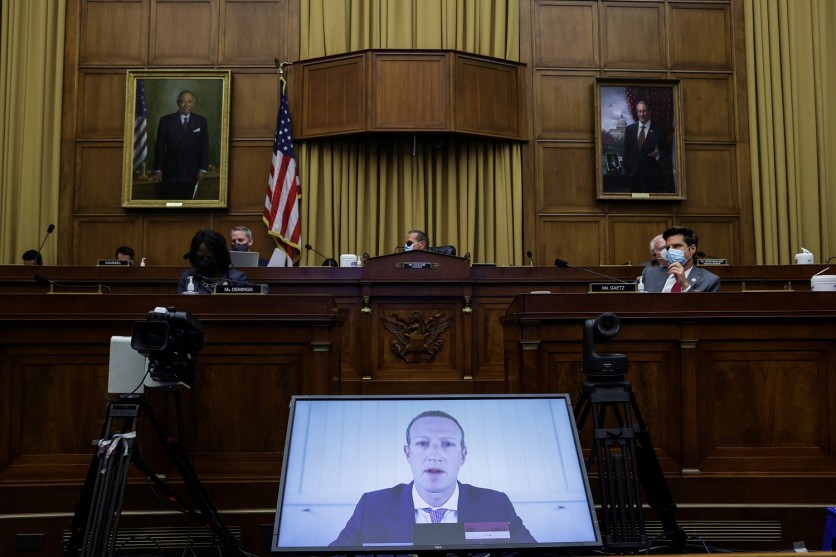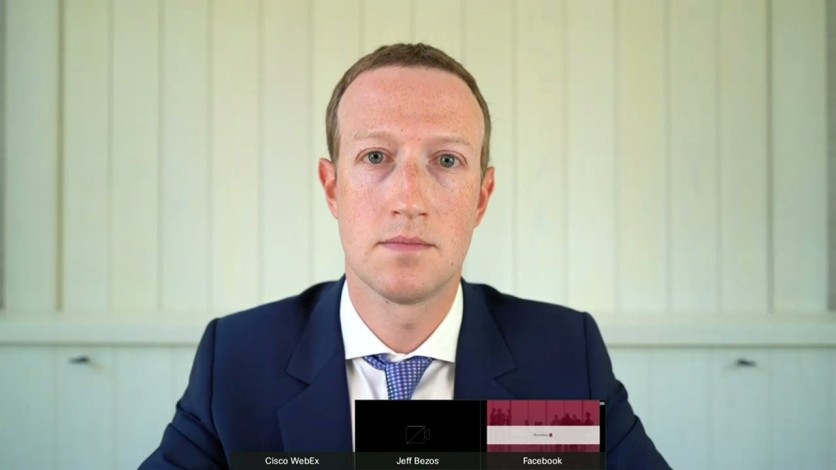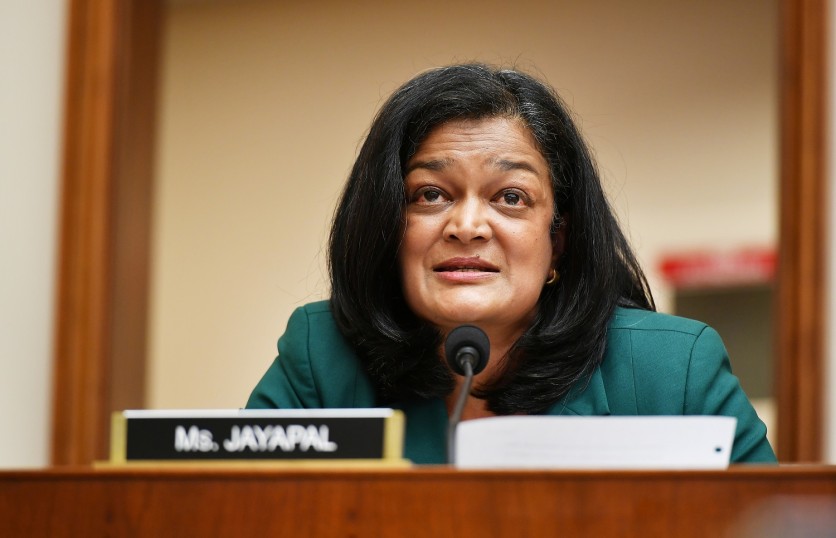Facebook CEO Mark Zuckerberg defended his company amid accusations of controlling monopolies and having anti-competition behaviors.
For the first time, the world's richest man Amazon's Jeff Bezos, Facebook's Mark Zuckerberg, the fourth richest man, Tim Cook, CEO of Apple, the world's most valued corporation, and Sundar Pichai of Google, key search engine, gather before the Antitrust, Commercial, and Administrative Law Subcommittee on July 29. They endured nearly six hours of grilling as they defended their companies, which were accused of being liars, copycats, bullies, and traitors.

One of the highlights of the hearing is when lawmakers showed Zuckerberg's internal emails boasting about acquiring competitors and plotting out a 'land grab' on rivals, as Daily Mail reported. As he read from the emails, Democratic Representative Joe Neguse accused Zuckerberg of running a monopoly in the tech market.
Documents from the Hearing on “Online Platforms and Market Power: Examining the Dominance of Amazon, Apple, Facebook and Google" pic.twitter.com/J6WKZaEMmv — House Judiciary Dems (@HouseJudiciary) July 29, 2020
Neguse asked the CEO if he recalls telling one of Facebook's senior engineers in 2012 that he can "buy any competitive start-up, but it will be a while until we can buy Google.' Zuckerberg replied he does not recall such a conversation, "but it sounds like a joke."
Documents from the Hearing on “Online Platforms and Market Power: Examining the Dominance of Amazon, Apple, Facebook and Google" pic.twitter.com/1o6TwV8k4k — House Judiciary Dems (@HouseJudiciary) July 29, 2020
Neguse said the 2012 email chain came after Facebook's acquisition of Instagram was completed. Zuckerberg explained that his goal is to 'neutralize potential competitors," particularly those that could damage Facebook's market leverage. Before the buyout, Instagram was one of the biggest competitors of Facebook.

Read also: Tech CEOs Congress Hearing: 5 Crucial Issues Raised and How Bezos, Zukerberg, Pichai, Cook Responded
The Colorado representative concluded that "Facebook has used its market power" in recent years to either buy or copy its rivals. He enumerated the apps owned by Facebook, which were among the most downloaded apps of the recent decade. These include Facebook, Facebook Messenger, Instagram, and WhatsApp.
"And we have a word for that - that word is monopoly," Neguse said.
House Judiciary Committee Chairman Rep. Jerrold Nadler commented that the documents are shown in the hearing "tell a very disturbing story" of how Facebook acquired Instagram.
Read also: Facebook Wants To Combine Messenger, Instagram, And WhatsApp: Here's What That Means
How Facebook acquired Instagram
Facebook acquired several social media and messaging apps such as Instagram and WhatsApp, while it has also attempted to buy Snapchat and other apps. For years, Facebook has grown to be one of the most powerful and popular social media platforms in the world.
Zuckerberg said in his five-page statement that he supports a "strong and consistent competition" policy that guarantees an equal playing field. "We believe in values -- democracy, competition, inclusion, and free expression -- that the American economy was built on," Zuckerberg said.
However, Rep. Pramila Jayapal downplayed Zuckerberg's statement. She asked the CEO of Facebook has ever "threatened to clone" other company's products while trying to acquire the company, in which Zuckerberg said "no."
However, Jayapal discussed that Facebook was also developing a similar product called Facebook Camera while it was then buying Instagram.

Read also: Mark Zuckerberg and Facebook Bosses Ignored Research Findings on Instagram's Racist Algorithm
The congresswoman quoted Instagram founder Kevin Systrom who believed that Zuckerberg would go into 'destroy mode' if Facebook did not get Instagram. The CEO denied the claim while it said the social media company "certainly adapted features" that its competitions have led in.
"Our acquisitions have helped drive innovation for people who use our own products and services and for the broader startup community," Zuckerberg said in his prepared statement.
Instead of breaking up the company, the CEO pushes for more regulation around vital issues like privacy and data portability.
Calls to close Facebook began last year after Chris Hughes, one of the company's founders, published an article in The New York Times. Hughes discussed how the social media network becomes a threat to democracy by disrupting its competitions.
This article is owned by Tech TImes.
Written by: CJ Robles
Read also: Facebook Ad Boycott: Brands Pulling Ads From Facebook Over Hate Speech
ⓒ 2026 TECHTIMES.com All rights reserved. Do not reproduce without permission.




